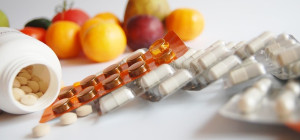 Health and longevity are not given to anyone just like that, people need to strive to achieve and maintain it with their lifestyle choices and start as early as possible. A proper way of life is the main tool in having good health. This concept includes physical activity, a positive attitude and, of course, proper nutrition, providing the body with all the necessary substances. We are what we eat and the products we consume have a great impact on our health.
Health and longevity are not given to anyone just like that, people need to strive to achieve and maintain it with their lifestyle choices and start as early as possible. A proper way of life is the main tool in having good health. This concept includes physical activity, a positive attitude and, of course, proper nutrition, providing the body with all the necessary substances. We are what we eat and the products we consume have a great impact on our health.
For a modern person, who buys products from the supermarket, the last condition is almost impossible, but there is one wonderful product that will help to fill in the missing substances – it’s called tea.
Effect of Tea
On the one hand, tea cannot be called medicine in the classic sense of the word. Tea does not cure diseases, and it would be foolish to rely only on it when the help of a specialist is needed.
Nevertheless, research all over the world has proven that tea has a general soothing effect aimed at improving almost all body functions and affecting all physiological systems of the body.
The effect of tea is always mild, accumulative – daily consumption of tea leads to a general improvement in health, in adaptive abilities and body resistance. Initially, tea was used in China only as a medicine, and only many centuries later people start to drink it in everyday life.
According to modern data, in order to feel the preventive effect of tea, it is recommended to drink up to 5 cups of tea every day, and for the pronounced therapeutic effect – from 6 to 10 cups.
Heart and vessels
Tea affects the functioning of the heart both in the short term (the stimulating effect of caffeine) and in the longer term: the potassium and magnesium contained in tea are very good for the heart.
Also, tea has a lot of vitamin P, which strengthens the walls of blood vessels and capillaries, making them more resilient and elastic. Studies have shown that green teas and oolongs not only prevent fats from depositing on the walls of blood vessels but also eliminate those that have already been formed.
Tea slightly speeds up blood circulation, dilates the blood vessels of the brain and heart, normalizes blood pressure, lowering too high and increasing too low pressure.
Effect on stomach, ulcers, infections, poisoning
First, tea has a pronounced tannic effect as well as antiseptic and antibacterial. Tannins of tea also have a wound-healing effect on gastric and intestinal ulcers. But it should be noted that tea increases the acidity of gastric juice, which is undesirable for gastric and duodenal ulcers.
For people with ulcers and those suffering from increased acidity (easy to identify by heartburn), it’s not recommended to drink strong tea and any tea on an empty stomach.
The tea suppresses the putrefactive processes in the intestines, destroys pathogenic bacteria, and neutralizes toxins. That is why strong tea (especially green) is recommended for enteritis and food poisoning.
Teeth and bones
Tea contains fluoride, calcium, and phosphorus, which take part in the formation of bone and dental tissue. Scientists have proven the preventive anti-caries effect of tea and its ability to strengthen tooth enamel.
Rinsing your mouth with the tea can prevent signs of early gingivitis and other inflammatory processes, due to its antiseptic properties.
Wounds and burns
Tannins have anti-inflammatory, hemostatic, antibacterial action. Fresh wounds can be washed with a very strong tea. Due to tannins, tea coagulates proteins, the same effect on blood as hydrogen peroxide (hemostatic), only weaker. Tea helps with weak burns as well as with severe ones. And it’s also useful in treating sunburns.
CNS, stress, tea intoxication
Tea is a mild psychostimulant that strengthens and accelerates many mental processes:
- It sharpens the work of analyzers (especially vision) and generally increases the sensitivity and susceptibility of the nervous system.
- Increases the reaction rate.
- It helps the assimilation of new information and improves concentration.
- Accelerates the process of thinking, especially creative.
- It improves mood, creates a meditatively relaxed atmosphere.
Free radicals, radiation, toxins
The mechanism of the anti-cancer action of tea is not fully understood, but the fact that it exists has been proven in many countries. But this action is more prophylactic. Tea is simply indispensable when living in environmentally poor areas.
Scientists associate these properties of tea with polyphenols contained in it, which have strong antioxidant properties. In the body, they come into contact with foreign substances (toxins, carcinogenic substances, radiation, etc.) and with them get excreted from the body.







